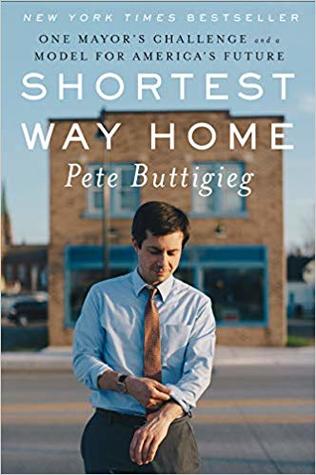More on this book
Community
Kindle Notes & Highlights
Read between
August 5 - September 8, 2024
For purpose-driven people, this is the conundrum of client-service work: to perform at your best, you must learn how to care about something because you are hired to do so. For some, this is not a problem at all. A great lawyer or consultant can identify so closely with the client, or so strongly desire to be good at the job, or be so well compensated, that her purposes and interests and those of the client become one. But for others, work can only be meaningful if its fundamental purpose is in things that would matter even if no one would pay you to care about them.
To me, the whole episode was about what happens when a public official becomes obsessed with ideology and forgets that the chessboard on which he is playing out his strategy is, to a great many people, their own life story.
Much of the confusion and complication of ideological battles might be washed away if we held our focus on the lives that will be made better, or worse, by political decisions, rather than on the theoretical elegance of the policies or the character of the politicians themselves.
Despite the name, its purpose was not to “restore” religious freedom—after all, religious freedom is already guaranteed in the Constitution. The bill’s actual purpose, its sponsors would later reveal, was to legalize discrimination.
Only in America in 2015 could a small-town pizza provider profess prejudice in the name of Christianity before a local TV crew, be mocked around the country on late-night television, and then be made rich beyond belief, all in a matter of days.
The bill’s original backers complained loudly that this “clarification” defeated the whole purpose of the bill, which was true—and revealing. Their objection exposed the deep truth that, contrary to Pence’s protestations, discrimination had been at the heart of their project all along.
The governor had lost respect on both sides of the aisle in his home state, and was now widely expected to lose his reelection. Strange bedfellows though they were, Mike Pence and Donald Trump needed each other. Win or lose, teaming up with Trump could give Pence a second political life.
For the first time in the modern life of South Bend, a mayor had to approach the arrival of a major presidential campaign in his city primarily through a sobering lens: not that of civic pride, or even partisan politics, but rather the possibility of political violence.
When her daughter showed her KKK-themed social media memes that her classmates were sending her that night while joking about Trump’s victory, she thought of her own upbringing as an African-American woman and realized it wasn’t just her daughter she was trying to reassure—it was herself.
Now, in post-2016 America, there were whole new categories of things you can volunteer to do—such as consoling and entertaining six-year-olds while their terrified immigrant parents gather in a school gym to get legal advice on how to keep their families from being torn apart by federal agents.
Nothing that had happened during the deployment would justify the pattern by which I returned safely and some of the others did not, but I had the rest of my life to try to repay whatever debt I had incurred by coming back in one piece.
SOMEDAY, POLITICIANS WON’T HAVE TO come out as gay any more than one “comes out” as straight. Someone like me would just show up at a social function with a date who was of the same sex, and everyone would figure it out and shrug.
It is easier to be cruel, or unfair, to people in groups and in the abstract; harder to do so toward a specific person in your midst, especially if you know them already. Gays have the benefit of being a minority whose membership is not necessarily obvious when you meet one (or love one). Common decency can kick in before there is time for prejudice to intervene. Of course, humans can be cruel to people we know, too, but not as often—and we’re rarely as proud of it.
In the struggle for equality, we do well to remember that all people want to be known as decent, respectful, and kind. If our first response toward anyone who struggles to get onto the right side of history is to denounce him as a bigot, we will force him into a defensive crouch—or into the arms of the extreme right.
Nothing in my life, from shaking hands with a president to experiencing my first rocket attack, matched the thrill of holding Chasten’s hand for the first time. I was electrified.
I knew that bedrock Democratic values around economic fairness and racial inclusion could resonate very well in the industrial Midwest, but not if they were being presented by messengers who looked down on working- and lower-middle-class Americans.
While true, that statement was not in keeping with how I publicly speak about political figures, or anyone else, and afterward I reflected that this president was inspiring a loss of decency not just in his supporters, but also in those of us who opposed him.


